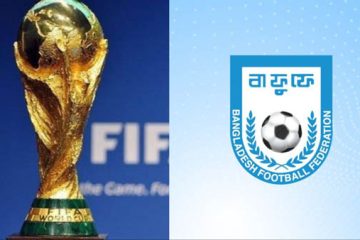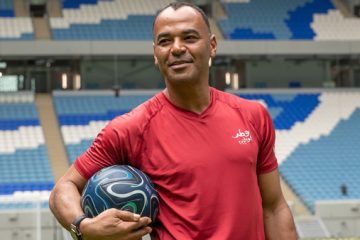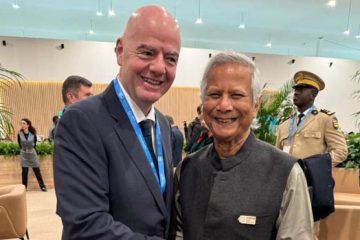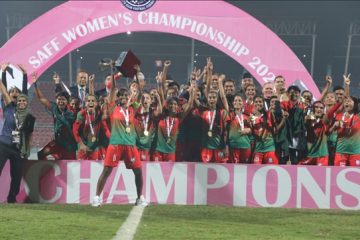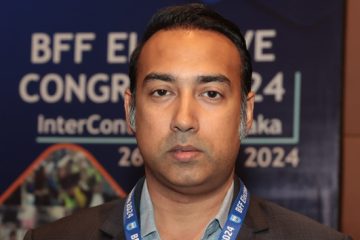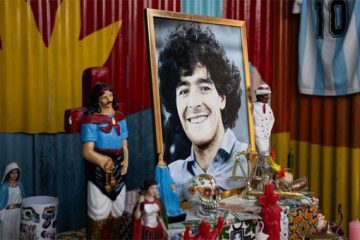Danger is not a word usually associated with coaching. But it is something which Bangladesh manager Lodewijk de Kruif had experienced during his first tenure in charge of the South Asian team two years ago.
While relaxing in a Kathmandu hotel – lodgings for all eight participating teams at the 2013 SAFF (South Asian Football Federation) Championship – De Kruif and his side were shaken by a major earthquake just a day out from their match against defending champions India.
Despite the devastation, the teams went on to play the next day as scheduled. Bangladesh, under the Dutchman, turned in a brilliant performance as they held the Indians to a 1-1 draw. The courage displayed by his players leaves De Kruif still moved two years on.
‘It was a big shock to everyone, the players, coaches, organisers and it was understandable if you think about this year’s earthquake in Nepal’, the 45-year-old told FIFA.com, citing April’s disaster which killed thousands of people. ‘In the first moment we were unaware what was happening, but it soon became apparent. We stayed calm and made the right decisions, and we went on to prepare for the next important match while trying to recover from the earthquake shock.
‘I have deep respect for my players as well as other teams for their courage in continuing to play. It was all about professionalism and bravery. We have learnt that you should try to make the right choice despite the difficulties facing you.’
Going Dutch
De Kruif’s first spell in charge of Bangladesh ended last October. But with the memory still fresh in mind, the Dutchman didn’t hesitate to take up the reins earlier this year when the country’s FA again came calling. He took the team to a runners-up finish in this January’s 2015 Bangabandhu Cup upon his return.
‘Bangladesh has a big population so it means huge potential,’ he said. ‘The talents are there and our tasks are to discover them. (Before my re-appointment) I had a good talk with the FA President. We have aimed at long-term development and I became enthusiastic. There is a lot of work to do but we are heading in the right direction.’
During his last tenure, De Kruif focused on the basic principles of a Dutch-style of play. Having seen the players make good progress, the manager has been encouraged to continue his vision of transforming the team with advanced football know-how or, in his words, the ‘Dutch school’ way.
‘Dutch school football is not a stagnant term,’ he said. ‘It evolves itself in modern football. Because you are left behind if you stop development. But the basic idea is positional play, high tempo, building the attack through possession and organisation. We encourage the wingers and fullbacks to attack. Of course, individual techniques are important and a player should be able to read the game well to implement the tactics.
‘The players played a sort of kick-and-run football when I first came. It is not something which suit the team because the players are not physically strong and tall. But we began the education of Dutch school football and the players have learned fast and adapted well. We have a very young squad and they are the country’s future.’
Challenging the big boys
De Kruif’s charges showcased their progress in Asia’s qualifying for the 2018 FIFA World Cup Russia™. Despite losing 3-1 to Kyrgyzstan in the opener on 11 June, the Bengal Tigers bounced back to draw 1-1 against Tajikistan at home five days later. Forward Jahid Hasan put the hosts ahead five minutes after the restart, and the visitors only had their blushes saved as Fatkhullo Fatkhuloev scored an equaliser two minutes from time.
‘We deserved more than a draw,’ De Kruif reflected. ‘We played well but should have claimed three points. But still it was a big boost for us. After all, our opponents in the opening two matches are strong. Our tactics worked well (against Tajikistan) and our boys played attractive football.’
‘Jahid is one of the most experienced in the team,’ De Kruif said paying tribute to the 27-year-old goal-scorer. ‘He plays a key role in a young team – one third of this squad are under 20 years old. He provides the youngsters with a role model.’
Awaiting Bangladesh next are formidable opponents in Australia and Jordan, both of whom are hopeful of finishing in the group’s top-two. They travel to Perth on 3 September to challenge the reigning Asian champions before entertaining the Jordanians five days later.
Despite the daunting tasks, De Kruif announced his intent of springing another surprise. ‘Both teams are strong but we won’t give up without fight. The team wants to do the people proud with good results against all opponents. In footballing terms Bangladesh may be not a big country, but these players are intent on changing the picture.’
-With New Age input

